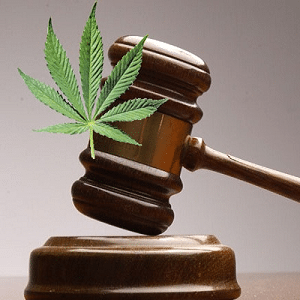 Can Fully Informed Juries Help Cannabis Prohibition?
Can Fully Informed Juries Help Cannabis Prohibition?
by Allen St. Pierre
Of the many numerous peaceful and constitutionally-respectful means employed for decades by which cannabis law reformers have been to try to bring about about an end to Cannabis Prohibition laws, one of the most benign, yet most powerful arrows in the activist’s quiver is jury nullification—whereby jurors are educated and informed about their right to vote not guilty in cases where they morally question the underlying law itself (and not just to cast a verdict ‘for’ or ‘against’ individuals the government has charged with ‘crimes’).
For almost 20 years NORML supporter and former Penn State Chemistry professor Julien Heicklen has been publicly advocating that jurors can’t be punished for voting their conscience, notably in cannabis-related cases, where, despite the evidence marshaled and the pleas for conviction and punishment by the government, jurors vote ‘not guilty’ in cases where the underlying law is in great dispute and/or are no longer supported by society in large (case in point here approximately 75% of the American public supports medical access to cannabis; 50% support ending Cannabis Prohibition outright).
Last year Dr. Heicklen was arrested in front of a federal court house in New York City for providing educational pamphlets to people passing by, including perspective jurors, that informed them of America’s long history with jury nullification (i.e. the trial of Peter Zenger during the colonial period) and that the practice is still important today in a functional democracy.
Thankfully, the charges of jury tampering against Dr. Heicklen were dismissed last week and there is now an even greater legal precedent to cite for both citizens accused of cannabis-related crimes (approximately 850,000 annually in America) and citizens asked to sit on juries to keep upholding antiquated Cannabis Prohibition laws.
To learn more about jury nullification and its likely historical importance in helping to end Cannabis Prohibition, please checkout the Fully Informed Jury Association (a.k.a. FIJA) @ fija.org
From New York Times
Jury Statute not Violated by Protester, Judge Rules
April 19, 2012
By BENJAMIN WEISER
The next time the 80-year-old retired chemistry professor takes his protest to the plaza outside the federal courthouse in Manhattan, he may make it home without being locked up.
A federal judge on Thursday ordered the dismissal of an indictment against the professor, Julian P. Heicklen, who had been charged with jury tampering for advocating the controversial position known as jury nullification while outside the courthouse.
Mr. Heicklen had repeatedly stood with a “Jury Info” sign and handed out brochures supporting nullification, the view that jurors who disagree with a law may ignore their oaths and vote to acquit a defendant accused of violating it.
Prosecutors said such advocacy, “directed as it is to jurors, would be both criminal and without constitutional protections no matter where it occurred.”
But the judge, Kimba M. Wood of Federal District Court, wrote that a person violated the jury tampering statute only when he or she knowingly tried to influence a juror’s decision through a written communication “made in relation to a specific case pending before that juror.”
Judge Wood added that she would not “stretch the interpretation” of the statute to cover speech that was “not meant to influence” a juror’s actions in a specific case.
Mr. Heicklen expressed pleasure at the ruling. “Not just for me,” he said. “I think it’s a major decision for the country.”
He added: “This is better than having them throw me in jail.”
Mr. Heicklen had contended that he did not try to influence specific jurors; rather, he handed out brochures to anyone who passed by, hoping jurors were among them.
Mr. Heicklen, who acted as his own lawyer, was assisted by two lawyers, Sabrina Shroff and Steven M. Statsinger of the federal defender’s office.
Ms. Shroff said she was pleased by the ruling. “The right to speech is just so fundamental,” she said.
Prosecutors declined to comment on the ruling. In a hearing last month, a prosecutor called Mr. Heicklen’s advocacy “a significant and important threat to our judicial system.”
Judge Wood made it clear that the indictment could be dismissed merely on a reading of the plain language of the statute, which refers to trying to influence a juror through “written communication” in relation to an “issue or matter pending” before the juror.
By taking that approach, the judge avoided First Amendment questions raised in the case, said Rachel E. Barkow, a law professor at New York University, who has written about nullification.
“I don’t think sensible prosecutors should have even brought this case,” Ms. Barkow said, adding that Judge Wood had rejected “the government’s broader reading because it would arguably chill protected speech.”
Christopher Dunn, associate legal director of the New York Civil Liberties Union, said the ruling freed Mr. Heicklen to resume his activities outside the courthouse, at 500 Pearl Street.
“But it has a much broader impact,” he said, “because there are people all around the country who do exactly what he was doing, and under this ruling they will no longer face the threat of prosecution.”
Article from NORML and republished with permission.






